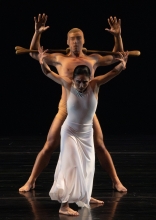CLST0102 - Ancient Rome
Status
A
Activity
LEC
Section number integer
920
Title (text only)
Ancient Rome
Term session
2
Term
2025B
Subject area
CLST
Section number only
920
Section ID
CLST0102920
Course number integer
102
Meeting times
MWF 12:00 PM-2:29 PM
Level
undergraduate
Instructors
Lantian Jing
Description
At its furthest extent during the second century CE, the Roman Empire was truly a "world empire", stretching from northern Britain to North Africa and Egypt, encompassing the whole of Asia Minor, and bordering the Danube in its route from the Black Forest region of Germany to the Black Sea. But in its earliest history it comprised a few small hamlets on a collection of hills adjacent to the Tiber river in central Italy. Over a period of nearly 1500 years, the Roman state transformed from a mythical Kingdom to a Republic dominated by a heterogeneous, competitive aristocracy to an Empire ruled, at least notionally, by one man. It developed complex legal and administrative structures, supported a sophisticated and highly successful military machine, and sustained elaborate systems of economic production and exchange. It was, above all, a society characterized both by a willingness to include newly conquered peoples in the project of empire, and by fundamental, deep-seated practices of social exclusion and domination. This course focuses in particular upon the history of the Roman state between the fifth century BCE and the third century CE, exploring its religious and cultural practices, political, social and economic structures. It also scrutinizes the fundamental tensions and enduring conflicts that characterized this society throughout this 800-year period.
Course number only
0102
Cross listings
ANCH0102920, HIST0721920
Fulfills
History & Tradition Sector
Cross Cultural Analysis
Cross Cultural Analysis
Use local description
No

